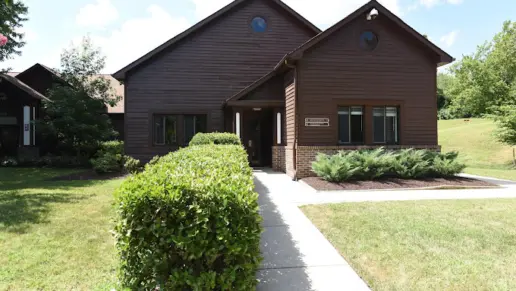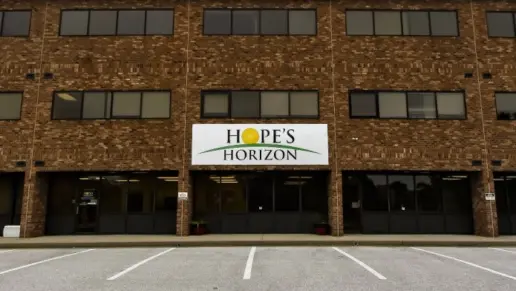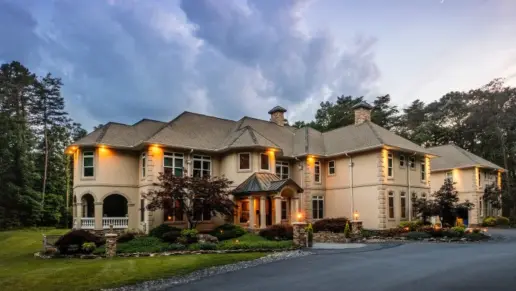The staff at Evolve truly cares for their clients and it shows. I am blown away by all they do to address issues that come u pin early recovery and to set clients up for long term success. They go above and beyond, no where else can compare.
About Evolve Life Centers
Evolve Life Centers is an addiction treatment facility in Pasadena, Maryland. They offer a homelike and communal residential treatment program for adults affected by substance use disorders. They’re conveniently nestled between Baltimore and Annapolis in the Glen Burnie/Pasadena area of Maryland. The facility boasts clean and comfortably furnished rooms with well tended common areas. There’s also a complete gym and fitness center for wellness activities.
Your recovery journey will most likely start with their residential program. You can choose between their medium intensity residential care which lasts 30 to 60 days or their low intensity option which is about five months long. Both enable you to build a strong foundation for achieving sobriety. You should expect to participate in monthly house activities, weekly recovery group meetings and individual sessions with an addiction expert. The emphasis is on individualized treatment and you must set realistic recovery goals.
Certified peer recovery specialists are available to provide guidance and promote accountability. Activities are designed to foster supportive social connections and productive recovery. Their outdoor recreations are specifically fun and exciting making recovery adventurous. Skydiving, sailing and horseback riding are some of these adventures. They also offer equine therapy, white water rafting and pumping carvings. These are activities that teach you emotional regulation, self confidence and responsibility.
Their outpatient programs include both general and intensive outpatient care. The latter is relatively structured and involves more intense therapy. You can expect to participate in up to nine hours of group sessions weekly. The general outpatient may require just 90 minutes of therapy weekly.
An even more intensive option for clients requiring more support after residential treatment is their partial hospitalization program. You’ll attend therapy sessions 7 days a week with various fun activities on the weekend for 28 days. Their therapists use a mix of techniques like cognitive behavioral therapy (CBT) and mindfulness in group, individual and family sessions. This aims to help you address negative behavioral patterns fueling your substance use and develop solid coping mechanisms.
Specialized services may be available to support clients struggling with co-occurring disorders. These services may include medication management and psychiatric evaluation in addition to addiction therapy. Their comprehensive discharge planning may involve a transition to their recovery housing.
This sober living facility offers a supportive environment for complete recovery focusing on peer support. You’ll follow house rules, attend meetings and engage in community activities to foster stability and independence before reintegration into the community. They may also refer you to 12 step groups like AA or NA for ongoing support.
Many have praised their exceptional services not only for residential treatment but also for their full continuum of care including outpatient programs and recovery housing. Their multidisciplinary care personnel are said to be friendly, compassionate and highly knowledgeable. They’re also CARF accredited which confirms their commitment to quality care delivery.
Rehab Score
Gallery
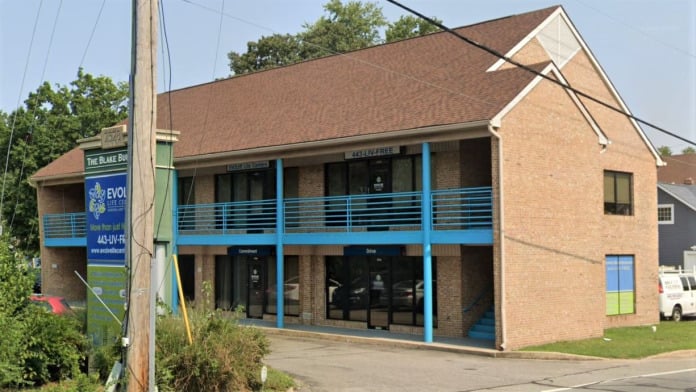
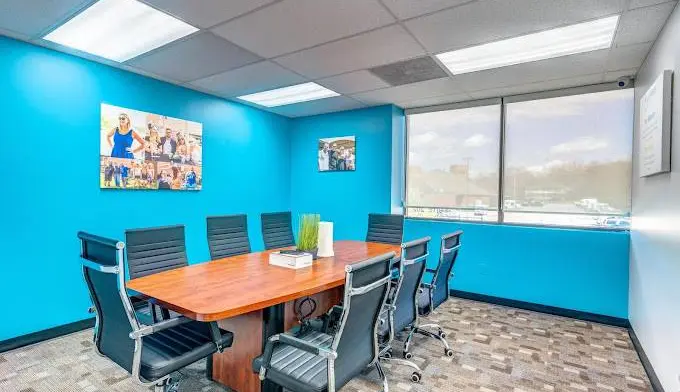
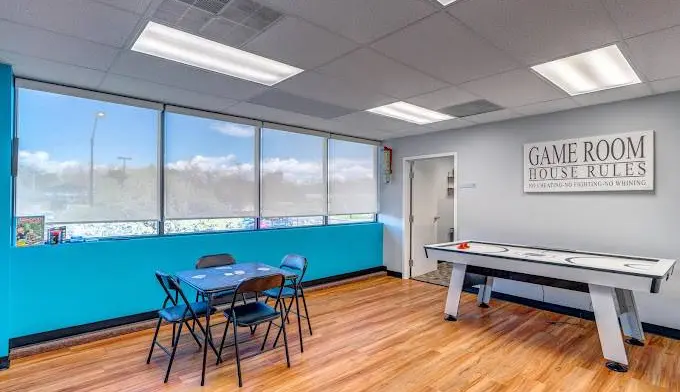
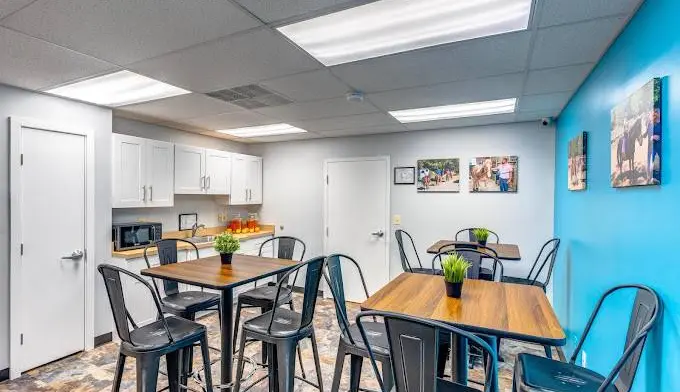
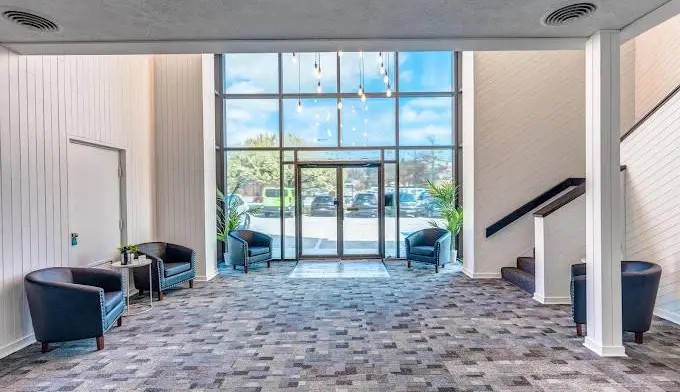
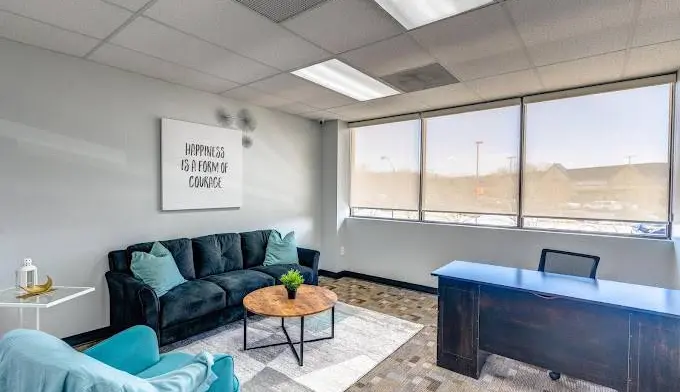
Location
Accepted Insurance
Other Forms of Payment
Self-pay involves paying for treatment out of your own pocket. You can use savings or credit, get a personal loan, or receive help from family and friends to fund your treatment. If you don't have insurance or your insurance plan doesn't cover a specific program, self-pay can help ensure you still get the care you need.
Medicaid is a state based program that helps lower-income individuals and families pay for healthcare. Medicaid covers addiction treatment so those enrolled can use their coverage to pay for rehab. When a program accepts Medicaid the client often pays very little or nothing out of their own pocket.
Military members, veterans, and eligible dependents have access to specific insurance programs that help them get the care they need. TRICARE and VA insurance can help you access low cost or no cost addiction and mental health treatment. Programs that accept military insurance often have targeted treatment focused on the unique challenges military members, veterans, and their families face.
Addiction Treatments
Levels of Care
Treatments
The goal of treatment for alcoholism is abstinence. Those with poor social support, poor motivation, or psychiatric disorders tend to relapse within a few years of treatment. For these people, success is measured by longer periods of abstinence, reduced use of alcohol, better health, and improved social functioning. Recovery and Maintenance are usually based on 12 step programs and AA meetings.
Once a person has become addicted to a substance, drug rehab in Maryland is often necessary to overcome that addiction. These programs provide the tools individuals need to manage the physical, mental, and emotional issues involved and begin a successful recovery journey.
Substance rehabs focus on helping individuals recover from substance abuse, including alcohol and drug addiction (both illegal and prescription drugs). They often include the opportunity to engage in both individual as well as group therapy.
Programs


Clinical Services
Group therapy is any therapeutic work that happens in a group (not one-on-one). There are a number of different group therapy modalities, including support groups, experiential therapy, psycho-education, and more. Group therapy involves treatment as well as processing interaction between group members.
In individual therapy, a patient meets one-on-one with a trained psychologist or counselor. Therapy is a pivotal part of effective substance abuse treatment, as it often covers root causes of addiction, including challenges faced by the patient in their social, family, and work/school life.
Life skills trainings involve all the skills a person must have in order to function successfully in the world. These include time management, career guidance, money management, and effective communication. Truly successful addiction recovery is based on the ability to not only live substance-free, but to thrive. Life skills teaches the practical necessities of functioning in society, which sets clients up for success in life, and therefore sobriety. During the stay life coach will help the client with a resume and come up with a realistic plan for obtaining employment. Some employment opportunities are available through their program, which will help the participants with fees until they are able to find employment.
Nutrition therapy, aka medical nutrition therapy (MNT), is a way of treating physical, emotional, and medical conditions through diet. Specific dietary plans are designed by professional nutritionists or registered dietitians, and patients follow them in order to positively affect their physical and mental health.
Amenities
-
Yoga Studio
Accreditations

The Commission on Accreditation of Rehabilitation Facilities (CARF) is a non-profit organization that specifically accredits rehab organizations. Founded in 1966, CARF's, mission is to help service providers like rehab facilities maintain high standards of care.
CARF Accreditation: Yes
Contact Information
2528 Mountain Road
Suite 204
Pasadena MD, 21122





